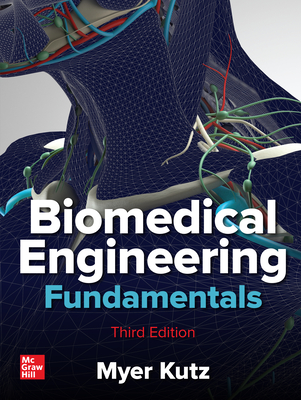Fundamentals of Neuromechanics (Biosystems & Biorobotics)
Francisco J. Valero-Cuevas
- 出版商: Springer
- 出版日期: 2015-09-23
- 售價: $3,980
- 貴賓價: 9.5 折 $3,781
- 語言: 英文
- 頁數: 194
- 裝訂: Hardcover
- ISBN: 1447167465
- ISBN-13: 9781447167464
-
相關分類:
機器人製作 Robots
海外代購書籍(需單獨結帳)
相關主題
商品描述
This book provides a conceptual and computational framework to study how the nervous system exploits the anatomical properties of limbs to produce mechanical function. The study of the neural control of limbs has historically emphasized the use of optimization to find solutions to the muscle redundancy problem. That is, how does the nervous system select a specific muscle coordination pattern when the many muscles of a limb allow for multiple solutions?
I revisit this problem from the emerging perspective of neuromechanics that emphasizes finding and implementing families of feasible solutions, instead of a single and unique optimal solution. Those families of feasible solutions emerge naturally from the interactions among the feasible neural commands, anatomy of the limb, and constraints of the task. Such alternative perspective to the neural control of limb function is not only biologically plausible, but sheds light on the most central tenets and debates in the fields of neural control, robotics, rehabilitation, and brain-body co-evolutionary adaptations. This perspective developed from courses I taught to engineers and life scientists at Cornell University and the University of Southern California, and is made possible by combining fundamental concepts from mechanics, anatomy, mathematics, robotics and neuroscience with advances in the field of computational geometry.
Fundamentals of Neuromechanics is intended for neuroscientists, roboticists, engineers, physicians, evolutionary biologists, athletes, and physical and occupational therapists seeking to advance their understanding of neuromechanics. Therefore, the tone is decidedly pedagogical, engaging, integrative, and practical to make it accessible to people coming from a broad spectrum of disciplines. I attempt to tread the line between making the mathematical exposition accessible to life scientists, and convey the wonder and complexity of neuroscience to engineers and computational scientists. While no one approach can hope to definitively resolve the important questions in these related fields, I hope to provide you with the fundamental background and tools to allow you to contribute to the emerging field of neuromechanics.
I revisit this problem from the emerging perspective of neuromechanics that emphasizes finding and implementing families of feasible solutions, instead of a single and unique optimal solution. Those families of feasible solutions emerge naturally from the interactions among the feasible neural commands, anatomy of the limb, and constraints of the task. Such alternative perspective to the neural control of limb function is not only biologically plausible, but sheds light on the most central tenets and debates in the fields of neural control, robotics, rehabilitation, and brain-body co-evolutionary adaptations. This perspective developed from courses I taught to engineers and life scientists at Cornell University and the University of Southern California, and is made possible by combining fundamental concepts from mechanics, anatomy, mathematics, robotics and neuroscience with advances in the field of computational geometry.
Fundamentals of Neuromechanics is intended for neuroscientists, roboticists, engineers, physicians, evolutionary biologists, athletes, and physical and occupational therapists seeking to advance their understanding of neuromechanics. Therefore, the tone is decidedly pedagogical, engaging, integrative, and practical to make it accessible to people coming from a broad spectrum of disciplines. I attempt to tread the line between making the mathematical exposition accessible to life scientists, and convey the wonder and complexity of neuroscience to engineers and computational scientists. While no one approach can hope to definitively resolve the important questions in these related fields, I hope to provide you with the fundamental background and tools to allow you to contribute to the emerging field of neuromechanics.
商品描述(中文翻譯)
這本書提供了一個概念性和計算框架,用於研究神經系統如何利用肢體的解剖特性來產生機械功能。對肢體的神經控制的研究在歷史上一直強調使用優化方法來找到解決肌肉冗余問題的方案。也就是說,當肢體的許多肌肉可以有多種解決方案時,神經系統如何選擇特定的肌肉協調模式?我重新思考了這個問題,從新興的神經機械學的角度來看,強調尋找和實施一系列可行的解決方案,而不是單一和唯一的最優解。這些可行解的系列自然地從可行的神經指令、肢體的解剖結構和任務的限制之間的相互作用中產生。這種對肢體功能神經控制的替代觀點不僅在生物學上是合理的,而且還為神經控制、機器人技術、康復和大腦-身體共進化適應等領域的核心原則和爭論提供了新的視角。這一觀點是我在康奈爾大學和南加州大學教授工程師和生命科學家的課程中發展起來的,並且通過將力學、解剖學、數學、機器人技術和神經科學的基本概念與計算幾何學的進展相結合而成。《神經機械學基礎》旨在為神經科學家、機器人學家、工程師、醫生、進化生物學家、運動員以及物理和職業治療師提供進一步了解神經機械學的工具和背景。因此,這本書的語氣明確是教學性的、引人入勝的、整合性的和實用的,以使來自各個學科領域的人士都能理解。我試圖在使生命科學家能夠理解數學表達的同時,傳達神經科學的奇妙和複雜性給工程師和計算科學家。雖然沒有一種方法能夠完全解決這些相關領域中的重要問題,但我希望能夠為您提供基本的背景和工具,使您能夠為新興的神經機械學領域做出貢獻。











